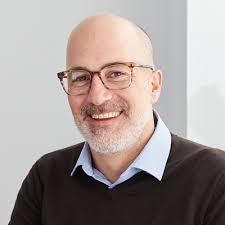Substance Abuse: A Pandemic within a Pandemic
Anna Kynthia Bousdoukou
During the year that the pandemic started, cocaine use in Greece appears to have hit a record high in the last decade, while the use of antidepressants doubled between March 2021 and March 2020. This new data was revealed for the first time during the SNF Dialogues event, “Substance Abuse: A Pandemic within a Pandemic" on Wednesday, 21 April.
In March 2019, cocaine consumption came up to 482 g. per day, while during the first lockdown in March 2020, it doubled to 804 g. per day. During the second lockdown in November 2020, it quadrupled, reaching 1,837 g. per day, further increasing to 2,396 g. per day in March 2021
This new data was shared publicly for the first time and analyzed during the SNF Dialogues webcast by the National and Kapodistrian University of Athens (NKUA) Professor of Analytical Chemistry, Nikos Thomaidis. Thomaidis gathered the data through the chemical analysis of sewage in Attica at the Analytical Chemistry Laboratory of the NKUA.
Sociologist and Research Director of KETHEA (Therapy Center for Addicted Individuals), Gerasimos Papanastasatos, offered interpretation of the data, discussing its social implications.
Illicit drugs use
DATA: Laboratory of Analytical Chemistry Dep.of Chemistry, University of Athens / Prof. Nikos Thomaidis
VISUALIZATION: iMEdD Lab / Τhanasis Troboukis
This same period also witnessed a sharp increase in the use of anti-anxiety drugs and antidepressants. March 2021 saw the highest increase in drug use over pre-pandemic levels, both in common sedatives with ingredients such as oxazepam and alprazolam and in antidepressants.
Consumption of psychoactive drugs
DATA: Laboratory of Analytical Chemistry Dep.of Chemistry, University of Athens / Prof. Nikos Thomaidis
VISUALIZATION: iMEdD Lab / Τhanasis Troboukis
“During this health crisis that we are experiencing, one pole is public health, related to Covid-19, and the other is mental health, which has fundamentally deteriorated during this past year,” commented Thomaidis, while presenting the data, for which the iMEdD Lab team prepared visualizations shown during the Dialogues discussion.
Nikos Thomaidis
“The term ‘narcotics,’ which has been prevalent in the market, is not an accurate term,” said Papanastasatos during his opening statement, making a distinction with psychotropic substances. “In fact, psychoactive substances have the ability to interfere with and to alter brain function. In this sense, they are not just narcotic substances. There are stimulants, sedatives, analgesics, hallucinogens, and hypnotics. Each of these categories has a completely different effect.”
Gerasimos Papanastasatos
The discussion also featured a screening of a pre-recorded interview with Fred Muench, a clinical psychologist and Head of the "Partnership to End Addiction" in New York. Muench, who has had his own experience with addiction, discussed the international scope of the problem.
“The first thing we see is, whether you have a problem or not, alcohol sales have skyrocketed, across the globe. The other thing we’re seeing is an increase in prescriptions. And those are both for anti-depression, but also anti-anxiety medications and sedatives. We’re seeing a 30% increase, particularly during the beginning of Covid-19. We’re also seeing more synthetic use, and this has created an overdose crisis in the US, and in the use of methamphetamine, because you can create it in a trailer in the middle of nowhere.”
“Substance use is not a matter of ethics. It is not a matter of deviant or non-deviant behavior. It has to do with personal choice. This does not mean of course, that the development of a problematic habit is always a matter of choice,” said Papanastasatos, referring to substance use and the way it can affect people in every stratum of society - a largely taboo topic. Commenting on the role of uncertainty - familiar to natural scientists - and the impact that it has on daily life, Nikos Thomaidis mentioned, “If we realize that any judgement we make includes uncertainty, then we will be able to deal with any situation in another way. Life itself contains uncertainty, and if we could teach this to our children and to people as a society, then perhaps we could solve the problem of addiction and many other problems.”
Interview with Fred Muench
In Brief
The SNF Dialogues are curated and moderated by Anna-Kynthia Bousdoukou and are held through the journalism non-profit organization iMEdD (incubator for Media Education and Development).
*The opinions expressed by Dialogues participants, whether officially representing institutions and organizations or themselves alone, at events, in articles, or in other audiovisual media are solely their own and do not necessarily represent the views of the Stavros Niarchos Foundation (SNF) or iMEdD. Speakers’ remarks are made freely, without prior guidance or intervention from the team.



